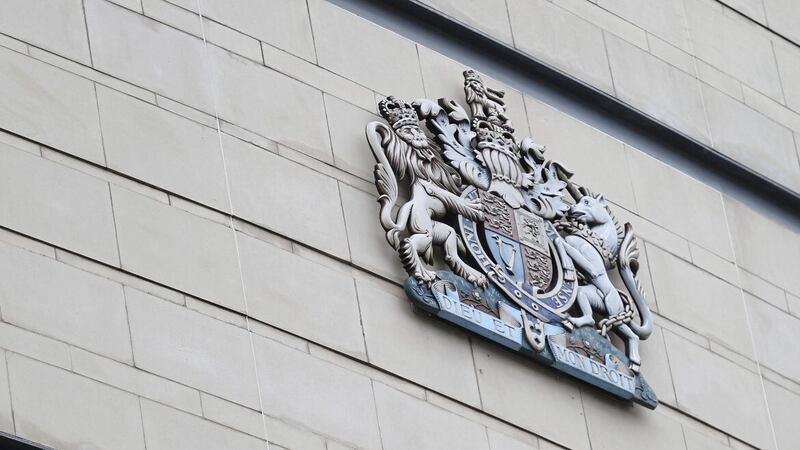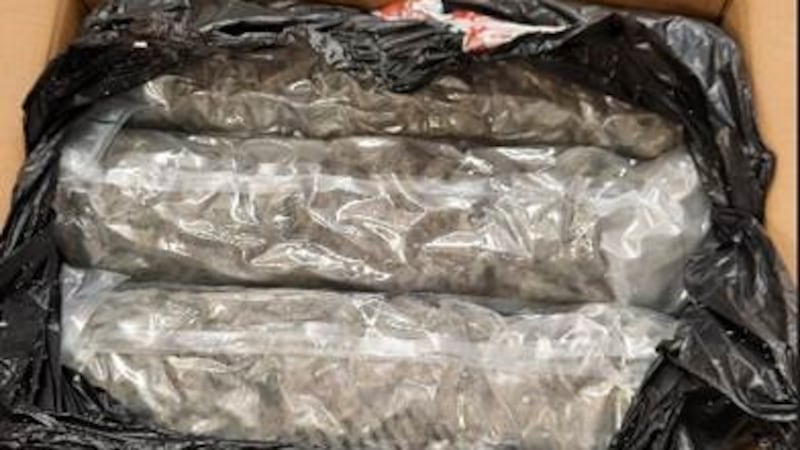An incident police described as a “concerted show of strength” during an ongoing loyalist feud in north Down was actually a “peaceful protest” to remove paramilitary signage, a court heard on Friday.
The claims came as three more men appeared at Newtownards Magistrates’ Court linked to the UDA feud.
All three, who are accused of affray and unlawful assembly on April 6, were refused bail.
Appearing via video-link from a police cell were Stewart Scott Anderson (46), Barry Dann (51) and Harry Murray (24).
Their addresses have not been published as judges have previously warned the media that the UDA feud is “potentially deadly”.
To date, eight other men, all from north Down, have been charged with the same offences and have been remanded into custody.
A police officer outlined in court how the charges are linked to the ongoing loyalist paramilitary drug feud spreading across Ards and north Down as one faction seeks to drive the rival gang out using what she described as “escalating violence”.
She told the court that on April 6, and in the context of police having a semi-permanent presence in the Weavers Grange area of Ards, a large crowd of 50 to 60 men, around 10 of whom were masked, were seen walking from the Jubilee Road, along an alley on the Circular Road and climbing over a fence to get into Weavers Grange.
In an incident she described as “orchestrated and designed to intimidate”, the officer said some men, one of whom had a hammer, were carrying ladders which were used to remove South East Antrim UDA banners from the gable walls of three houses.
Giving evidence that she believed she could connect each of the defendants to the charges, the detective said she was objecting to bail due to the risk of further offences and witness interference.
The officer said that since the feud began on March 22, there have been around 120 incidents including petrol bomb attacks, a pipe bomb attack, a shooting, a litany of damage caused and intimidation, adding that the feud has put “considerable strain on police resources and the public purse”.
Highlighting how residents in north down and Ards especially were living in fear, Detective Constable Walker told the court: “Police believe there’s a real risk of further offending, as the area is highly volatile at present.”
The level of violence is “ongoing and escalating”, said the officer, adding that the attacks had “caused great fear in the area”.
The officer said that, according to the police case in relation to the latest three accused specifically, Anderson and Dann are seen using ladders to remove South East Antrim UDA banners.
Defence lawyers for the three defendants argued there was not enough evidence to establish a formal connection to the charges, but despite their submissions, District Judge Amanda Brady said there was a “low bar”, in that all she needed was the sworn testimony of a police officer, and so she was “satisfied there is enough to establish a formal connection”.
The court heard that while Anderson disputes that he was present at Weavers Grange, Dann and Murray accept they were there but claim it was part of a “peaceful protest”.
A solicitor for Murray argued that it was a planned, peaceful protest, “organised to do with drug dealing in the area by people who live there”.
“These people are not wanted and they have caused fear and misery by dealing drugs,” claimed the lawyer, adding that the people in Weavers Grange “were intimidating people in the area”.
The lawyers also highlighted that, despite the fact the incident was on April 6, “and we are now in the middle of June”, there had been no allegations of witness interference or other offences against any of the accused, submitting that, with bail conditions, each of them could be released.
Judge Brady said that while the lawyers had made “cogent and strong” applications in favour of bail, those applications had to be seen in the overall context of the case, in that each of them “are accused of involving themselves in activities that has been interpreted by the police as taking place in an ongoing paramilitary feud”.
“[Given the feud] between paramilitary gangs I think that there’s a risk of further offences and that outweighs any personal circumstances that they have, so I’m refusing bail,” she concluded.
Remanding all three accused into custody, Judge Brady adjourned the case to July 5.


